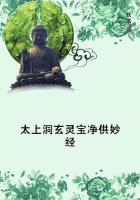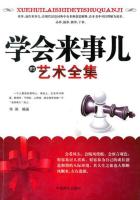One of the historical dinners of New York, which no one will forget who was there, was just after the close of the Civil War, or, as my dear old friend, Colonel Watterson, called it, "The War between the States." The principal guests were General Sherman and Henry W. Grady of Atlanta, Ga. General Sherman, in his speech, described the triumphant return of the Union Army to Washington, its review by the President, and then its officers and men returning to private life and resuming their activities and industries as citizens. It was a word-picture of wonderful and startling picturesqueness and power and stirred an audience, composed largely of veterans who had been participants both in the battles and in the parades, to the highest degree of enthusiasm. Mr. Grady followed. He was a young man with rare oratorical gifts. He described the return of the Confederate soldiers to their homes after the surrender at Appomattox. They had been four years fighting and marching. They were ragged and poor. They returned to homes and farms, many of which had been devastated. They had no capital, and rarely animals or farming utensils necessary to begin again. But with superb courage, not only on their own part but with the assistance of their wives, sisters, and daughters, they made the desert land flourish and resurrected the country.
This remarkable description of Grady, which I only outline, came as a counterpart to the triumphant epic of General Sherman. The effect was electric, and beyond almost any that have ever occurred in New York or anywhere, and Grady sprang into international fame.
Joseph H. Choate was a most dangerous fellow speaker to his associates who spoke before him. I had with him many encounters during fifty years, and many times enjoyed being the sufferer by his wit and humor. On one occasion Choate won the honors of the evening by an unexpected attack. There is a village in western New York which is named after me. The enterprising inhabitants, boring for what might be under the surface of their ground, discovered natural gas. According to American fashion, they immediately organized a company and issued a prospectus for the sale of the stock. The prospectus fell into the hands of Mr. Choate.
With great glee he read it and then with emphasis the name of the company: "The Depew Natural Gas Company, Limited," and waving the prospectus at me shouted: "Why limited?"There have been two occasions in Mr. Choate's after-dinner speeches much commented upon both in this country and abroad. As I was present on both evenings, it seems the facts ought to be accurately stated. The annual dinner of the "Friendly Sons of St. Patrick"occurred during one of the years when the Home Rule question was most acute in England and actively discussed here. At the same time our Irish fellow citizens, with their talent for public life, had captured all the offices in New York City. They had the mayor, the majority of the Board of Aldermen, and a large majority of the judges. When Mr. Choate spoke he took up the Home Rule question, and, without indicating his own views, said substantially:
"We Yankees used to be able to govern ourselves, but you Irish have come here and taken the government away from us. You have our entire city administration in your hands, and you do with us as you like. We are deprived of Home Rule. Now what you are clamoring for both at home and abroad is Home Rule for Ireland.
With such demonstrated ability in capturing the greatest city on the western continent, and one of the greatest in the world, why don't you go back to Ireland and make, as you would, Home Rule there a success?"I was called a few minutes afterwards to a conference of the leading Irishmen present. I was an honorary member of that society, and they were in a high state of indignation. The more radical thought that Mr. Choate's speech should be resented at once.
However, those who appreciated its humor averted hostile action, but Mr. Choate was never invited to an Irish banquet again.
The second historical occasion was when the Scotch honored their patron Saint, St. Andrew. The attendance was greater than ever before, and the interest more intense because the Earl of Aberdeen was present. The earl was at that time Governor-General of Canada, but to the Scotchmen he was much more than that, because he was the chief of the Clan Gordon. The earl came to the dinner in full Highland costume. Lady Aberdeen and the ladies of the vice-regal court were in the gallery. I sat next to the earl and Choate sat next to me. Choate said: "Chauncey, are Aberdeen's legs bare?"I looked under the tabIe-cloth and discovered that they were naturally so because of his costume. I answered: "Choate, they are."I thought nothing of it until Choate began his speech, in which he said: "I was not fully informed by the committee of the importance of the occasion. I did not know that the Earl of Aberdeen was to be here as a guest of honor. I was especially and unfortunately ignorant that he was coming in the full panoply of his great office as chief of Clan Gordon. If I had known that I would have left my trousers at home."Aberdeen enjoyed it, the ladies in the gallery were amused, but the Scotch were mad, and Choate lost invitations to future Scotch dinners.
Few appreciate the lure of the metropolis. It attracts the successful to win greater success with its larger opportunities.
It has resistless charm with the ambitious and the enterprising.
New York, with its suburbs, which are really a part of itself, is the largest city in the world. It is the only true cosmopolitan one. It has more Irish than any city in Ireland, more Germans and Italians than any except the largest cities in Germany or Italy. It has more Southerners than are gathered in any place in any Southern State, and the same is true of Westerners and those from the Pacific coast and New England, except in Chicago, San Francisco, or Boston. There is also a large contingent from the West Indies, South America, and Canada.















